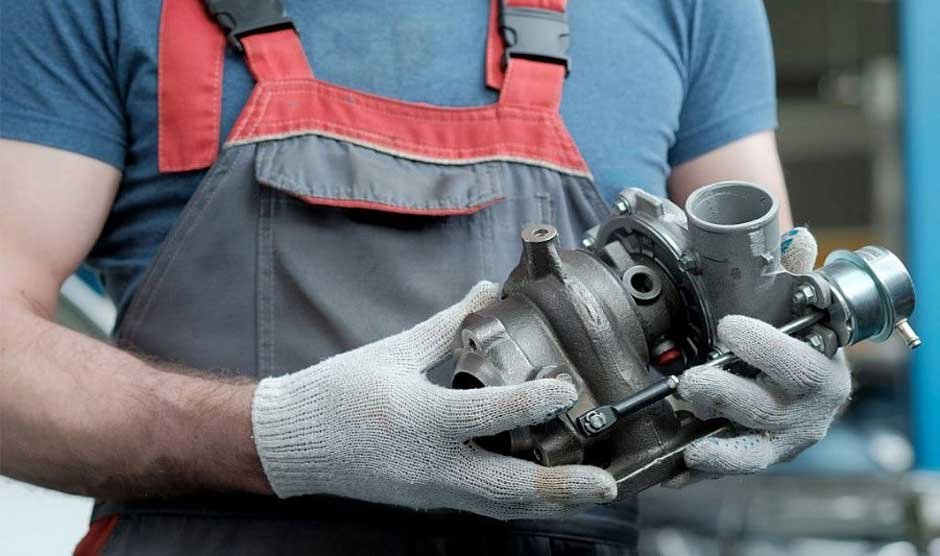A turbocharger can be a valuable addition to any engine, providing better performance and fuel efficiency. However, just like any other part of your vehicle, a turbocharger requires regular care and maintenance to keep it functioning properly. By taking some simple steps, you can extend the life of your turbocharger and avoid costly repairs in the future.
Warm Up Your Engine Before Driving
One of the simplest ways to take care of your engine with a turbocharger is to allow it to warm up before driving. Turbochargers operate at extremely high temperatures, and it’s important to give the engine oil enough time to reach the optimal temperature and viscosity. When you start your vehicle, let it idle for a few minutes, especially on colder days. This practice ensures that the engine oil circulates properly, providing the necessary lubrication for the turbocharger. Driving with a cold engine can lead to increased wear and tear on the turbocharger over time.
These tips apply to anyone looking to preserve their ford turbo, BMW, Audi, Jaguar, Vauxswaggen, Toyota, or anything in between.
Use the Right Engine Oil
The type of engine oil you use can significantly impact the lifespan of your turbocharger. Turbochargers rely on engine oil for both lubrication and cooling. It’s essential to use high-quality oil that meets the specifications outlined in your vehicle’s manual. Regular oil changes are equally important, as dirty oil can lead to the build-up of deposits on the turbocharger’s components, affecting its efficiency and potentially causing damage.
When choosing oil, look for products that are designed for engines with turbochargers. These oils have specific additives that help protect the turbocharger’s bearings and components, ensuring smooth operation. Failing to use the right oil or neglecting oil changes can result in reduced performance and, in some cases, costly damage to the turbocharger. If damage occurs, it can lead to decreased engine performance or complete turbocharger failure. In such cases, consulting a mechanic should be the first step to diagnose the problem. If the turbo is beyond repair, you may need to look into turbos for sale.
Let Your Engine Cool Down After Driving
After driving, especially if you’ve been on a long journey or driving at high speeds, it’s important to let the engine idle for a couple of minutes before shutting it off. Turbochargers can get extremely hot, and turning off the engine immediately can cause the oil inside the turbo to overheat and break down, leading to the formation of carbon deposits. These deposits can restrict oil flow and result in poor lubrication, ultimately damaging the turbocharger.
Allowing the engine to idle gives the turbocharger time to cool down gradually. This simple habit can go a long way in preventing issues related to overheating and extends the life of your engine’s turbocharger.
Keep Your Air Filter Clean
A clean air filter plays a vital role in maintaining your turbocharger’s performance. Turbochargers compress air and send it into the engine, so any dirt or debris entering the system can damage its internal components. A clogged or dirty air filter can reduce the efficiency of the turbocharger and increase the risk of damage.
Regularly checking and replacing the air filter when necessary can help prevent contaminants from entering the turbocharger. This small maintenance step is an easy way to safeguard the turbocharger’s operation and improve overall engine performance.
Benefits of Installing a New or Reconditioned Turbocharger
If your current turbocharger is showing signs of age or wear, it might be time to consider installing a new or reconditioned turbocharger. Opting for a new or remanufactured unit can breathe new life into your vehicle, enhancing the engine’s efficiency and performance. A new turbocharger can restore the power and responsiveness of your engine, making daily driving more enjoyable.
Reconditioned turbochargers are a great alternative, offering the same benefits at a more budget-friendly price. They undergo thorough inspection and refurbishment to ensure they meet high-quality standards, providing reliable performance without the cost of a brand-new unit. Installing a fresh turbocharger, whether new or reconditioned, can also improve fuel efficiency, helping you get more miles out of every tank.
In summary, taking care of your turbocharger doesn’t require extensive effort, but it does involve forming some new habits. Allowing your engine to warm up before driving, using the right oil, and letting the engine cool down after driving are all essential habits that can prolong the life of your turbocharger. Pairing these steps with regular maintenance can help ensure your turbocharger continues to perform effectively for years to come. If needed, a new or reconditioned turbocharger can provide a fresh boost to your vehicle’s performance, making it a worthwhile investment.

